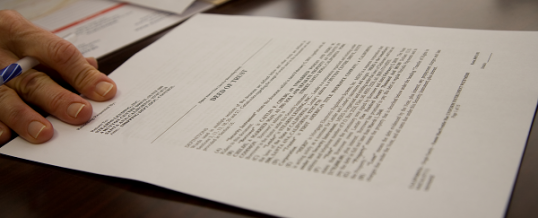At first it seems like the easy, smart, money-saving path to take. Simply add your children to the deed of your home, bypass the probate process, and minimize costs to the children. This strategy is very common. The idea is to hold real property jointly with family members who are given what is called “rights of survivorship.”
There are major disadvantages to adding your children directly to your deed, and is not recommended. One such disadvantage is due to tax implications. As an illustration: if you purchased the home for $100,000 then at some point added a name to the deed, then passed away, your child would own the home. If that child later sells the house for $500,000, a capital gain of $400,000 would be taxed. This is not the case if the home is given to the child through proper estate planning.
If you have questions or concerns about how to best hold title to a home, consult with a legally qualified estate planning attorney before making any decisions. Your attorney can guide you through the best options given your unique financial situation.

